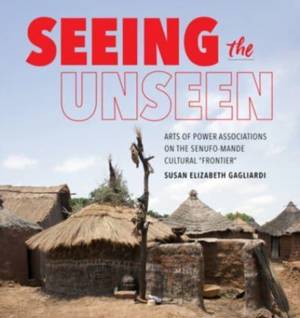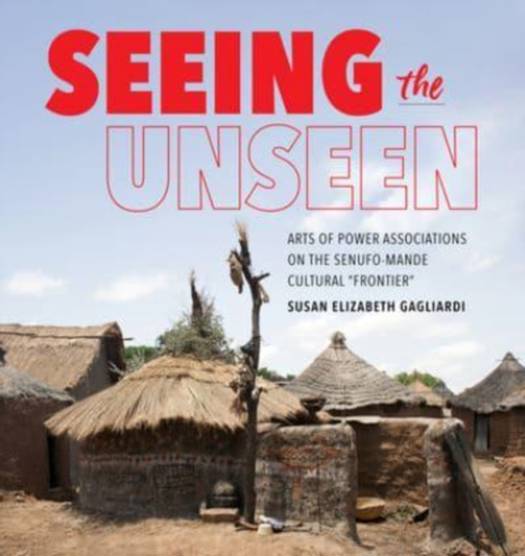
- Afhalen na 1 uur in een winkel met voorraad
- Gratis thuislevering in België vanaf € 30
- Ruim aanbod met 7 miljoen producten
- Afhalen na 1 uur in een winkel met voorraad
- Gratis thuislevering in België vanaf € 30
- Ruim aanbod met 7 miljoen producten
Seeing the Unseen
Arts of Power Associations on the Senufo-Mande Cultural Frontier
Susan Elizabeth GagliardiOmschrijving
How do arts convey the existence of potent knowledge without revealing details of that knowledge?
In Seeing the Unseen, art historian Susan Elizabeth Gagliardi examines tensions between the seen and unseen that makers, patrons, and audiences of arts in western West Africa negotiate through objects, assemblages, and performances. Gagliardi examines how ambiguity anchors design of the arts, and she shows that attempts to determine exact meanings miss the point. Specialists across western West Africa construct assemblages, installations, and buildings that hint at the possibility of revelation, but full disclosure remains unattainable. Specific activities and contexts integral to the design and use of the works often leave no visible trace.
Through attention to many ways of seeing and knowing, Seeing the Unseen opens new possibilities for the study of so-called historical or classical arts of Africa grounded in the specificity of individual works, their making, and their reception. It also prompts us to reflect on how we know and what it means to know in any context.
Specificaties
Betrokkenen
- Auteur(s):
- Uitgeverij:
Inhoud
- Aantal bladzijden:
- 342
- Taal:
- Engels
- Reeks:
Eigenschappen
- Productcode (EAN):
- 9780253064288
- Verschijningsdatum:
- 3/01/2023
- Uitvoering:
- Paperback
- Formaat:
- Trade paperback (VS)
- Afmetingen:
- 213 mm x 226 mm
- Gewicht:
- 748 g

Alleen bij Standaard Boekhandel
Beoordelingen
We publiceren alleen reviews die voldoen aan de voorwaarden voor reviews. Bekijk onze voorwaarden voor reviews.











